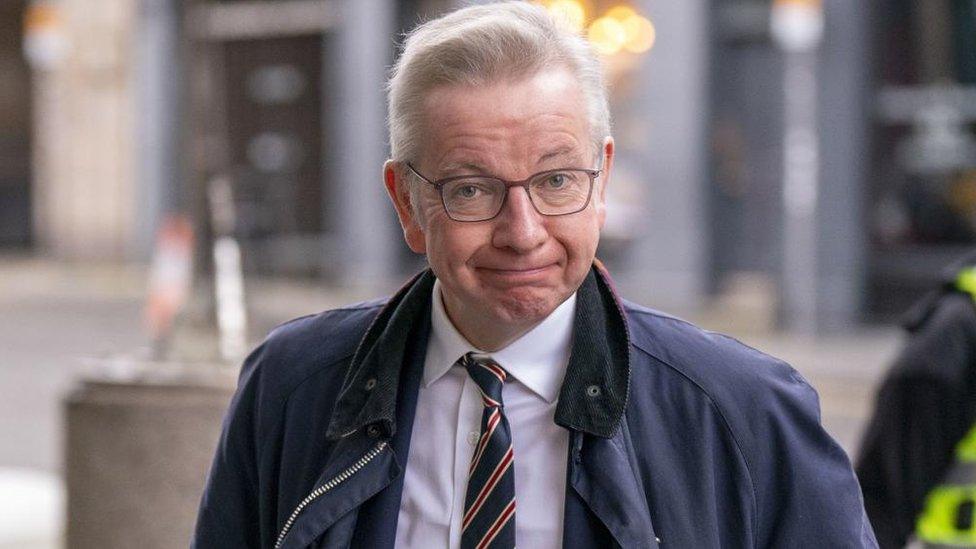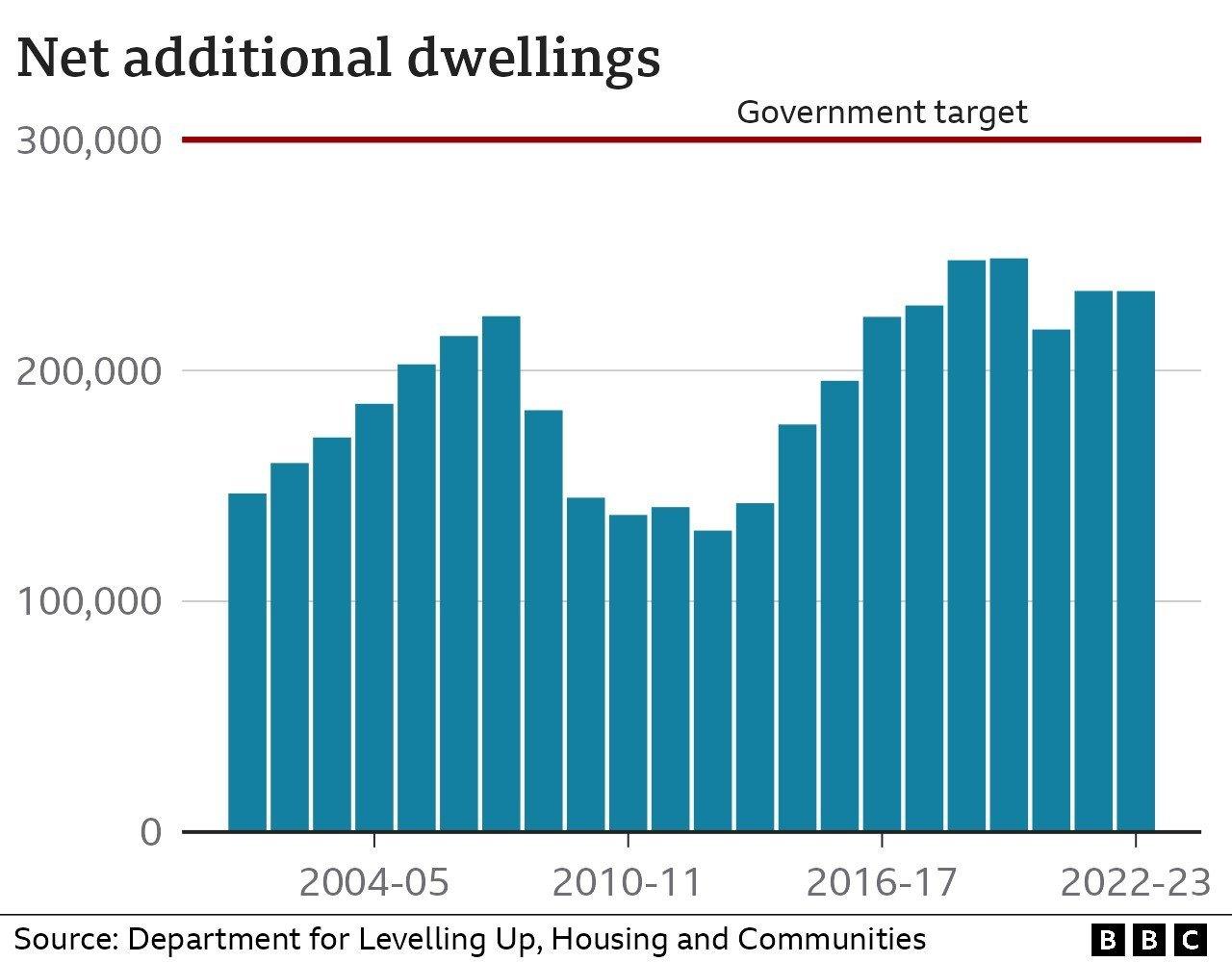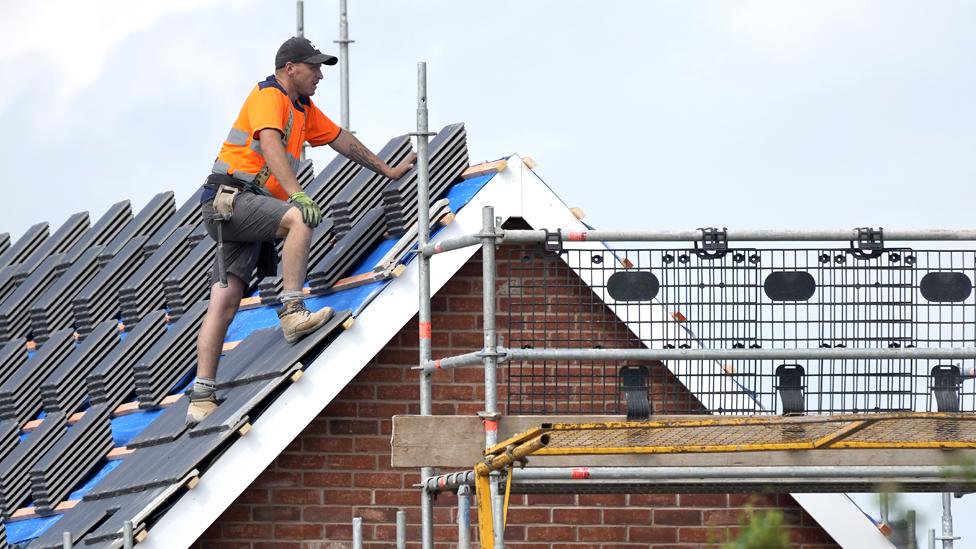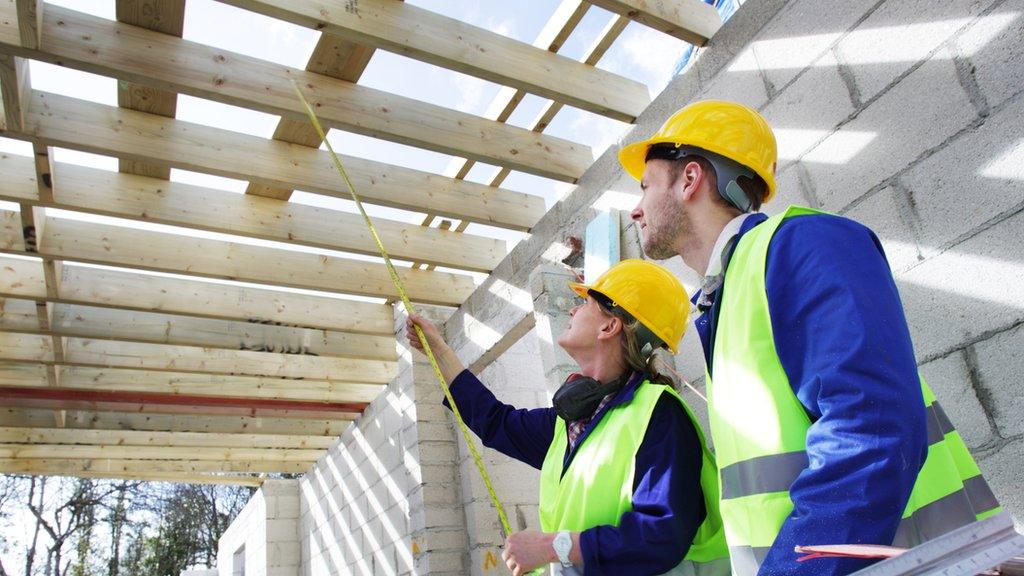Housing crisis: Gove eyes quick shop conversions to create more homes
- Published

Empty high street shops could be quickly converted to homes under an expected relaxation of planning laws.
Michael Gove is expected to announce that a law allowing commercial buildings to be turned into homes without planning permission will extend to shops and offices of any size.
It will also cut the need for them to have been empty for a period of time.
Labour said the plan was an old idea and that home approvals in brownfield areas had halved under Tory rule.
It comes six months after Mr Gove, the housing secretary, first flagged that his department was working on relaxing planning rules.
The Department for Levelling Up, Housing and Communities says the proposed amendments to planning law will still require buildings to be safe, uphold good standards of living space and have natural light.
It added that the changes would focus on brownfield sites - areas which have already been built on - to limit development sprawling out to the outskirts of villages.
In July last year, Mr Gove told the BBC that building denser cities would create more "walkable, liveable communities" that cut commuting times to work, and that more "buzzy urban areas" would help the UK economy.
He is set to offer incentives to developers to build on brownfield land, which he said would allow "tens of thousands of new homes" to be built.
"Communities expect us to make use of empty properties or disused buildings, and redevelop existing derelict sites, before we consider building on other land," he said in July.
Critics have previously said that such conversions are often poor quality.
In an interview with the Sunday Times, external, Mr Gove also said he planned to change rules so that sustainable developments on brownfield land in cities such as Birmingham, Sheffield or Manchester should automatically be given the go-ahead.
After Mr Gove first announced he would be pursuing changes to planning law, the Local Government Association warned that offices, shops and barns were not always suitable for housing, and could result in the creation of poor quality homes.
In its 2019 manifesto, the Conservative government pledged to build "300,000 homes a year by the mid-2020s". In both 2021-22 and 2022-23 the figures were just under 235,000 a year.

The manifesto also pledged to build at least a million more homes by the end of this Parliament, which will be December 2024 at the latest.
Labour's deputy leader and shadow housing secretary Angela Rayner said that Mr Gove's plans were a re-announcement of old ideas.
"The public will have lost count on how many times this Tory government has re-announced this policy," she said.
"Yet since the Tories came to power, the number of new homes approved on brownfield sites has halved.
"Labour will get Britain building again: We'll reform the planning system and deliver 1.5 million homes - to boost the economy and help working people onto the housing ladder."

Are you living in temporary accommodation following a Section 21 eviction and waiting for social housing? Share your experiences by emailing haveyoursay@bbc.co.uk, external.
Please include a contact number if you are willing to speak to a BBC journalist. You can also get in touch in the following ways:
WhatsApp: +44 7756 165803
Tweet: @BBC_HaveYourSay, external
Please read our terms & conditions and privacy policy
If you are reading this page and can't see the form you will need to visit the mobile version of the BBC website to submit your question or comment or you can email us at HaveYourSay@bbc.co.uk, external. Please include your name, age and location with any submission.
- Published25 July 2023

- Published2 August 2024
